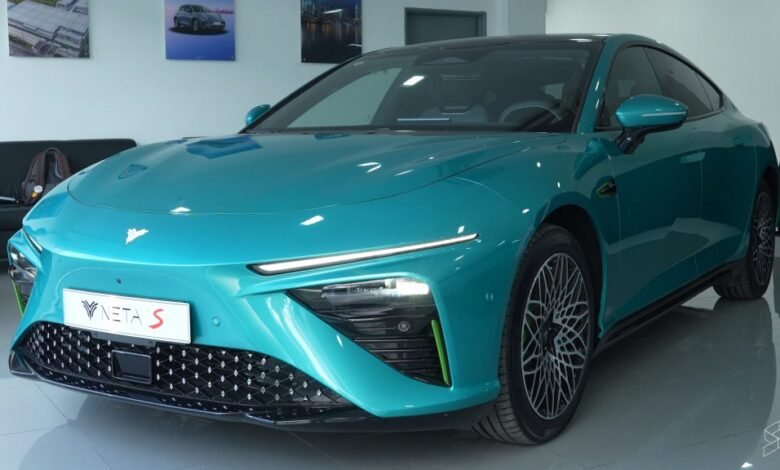Thinking About Buying a New Car? Here’s Everything You Need to Know

Buying a new car is one of those big decisions in life that comes with equal parts excitement and anxiety. Whether you’re upgrading from an old beater or finally getting that dream ride, the process involves more than just picking a color and signing some papers. From understanding the real benefits of going new, to financing options and even timing your purchase, there’s a lot to consider.
So, if you’re in the market for a new car—or just daydreaming about it—this guide will walk you through everything you need to know.
Why Buy a New Car Instead of a Used One?
Let’s start with the elephant in the garage: why should you even consider a new car in the first place?
First off, reliability is one of the most compelling reasons. New cars come with zero wear and tear, meaning you’re not inheriting someone else’s problems. Plus, with modern cars built better than ever, a brand-new vehicle can run trouble-free for many years if maintained properly. You also get that sweet manufacturer’s warranty, which can save you thousands in unexpected repairs down the line.
Second, safety technology is a game-changer. New cars are often equipped with the latest safety features like automatic emergency braking, lane-keeping assist, blind-spot monitoring, and more. These aren’t just bells and whistles—they’re real lifesavers. If you’re putting family or long daily commutes into the equation, those features become essential rather than optional.
Third, there’s the peace of mind factor. With a new car, you don’t have to guess how it was treated by a previous owner or whether it’s had flood damage or hidden repairs. You’re the first to drive it, and you know its entire history—because you’re writing it.
Picking the Right New Car for You

Alright, so you’re sold on going new. But how do you actually choose the right car?
Start by thinking about your lifestyle and needs. Are you a solo commuter? A parent with three kids and a golden retriever? A weekend adventurer who needs to haul kayaks and camping gear? These questions matter more than brand or price at first. You need something that fits your daily routine like a glove.
Then comes the budget talk. It’s easy to fall for a luxury SUV with all the goodies, but if your monthly payments are going to give you nightmares, it’s probably not the right choice. Set a realistic budget for total cost of ownership—this includes fuel, insurance, maintenance, and depreciation, not just the sticker price.
Finally, don’t overlook the features that actually matter to you. If you’re tech-savvy, you might want wireless Apple CarPlay, a digital dashboard, or built-in navigation. If you’re all about comfort, prioritize heated seats, dual-zone climate control, or a quiet cabin. Prioritize your “must-haves” and “nice-to-haves” so you don’t get distracted by marketing fluff.
Timing Your Purchase Can Save You Big
One of the lesser-known secrets of buying a new car? Timing really does matter.
Car dealerships operate on monthly, quarterly, and yearly sales targets, so if you shop smart—especially at the end of a month or year—you might score a better deal. December is often one of the best months to buy a new car, as dealerships are eager to clear out old inventory before the new year.
Another solid tip? Look for a model that’s just been refreshed or is about to be. When manufacturers roll out a new generation of a vehicle, dealerships often discount the outgoing models to move them off the lot. These “older” new cars are still brand new but often come at thousands less than their updated siblings.
And of course, keep an eye on holiday sales events. While some are more hype than help, others—like Memorial Day, Labor Day, and Black Friday—can come with serious incentives, including cashback offers and low-interest financing.
Financing a New Car: What You Should Know
Let’s talk money—because most people don’t just walk into a dealership and pay cash.
Financing your new car the smart way can save you a lot in the long run. Start by shopping for a loan before you even hit the dealership. Banks, credit unions, and online lenders often offer better interest rates than dealers, and getting pre-approved gives you a stronger bargaining position.
Pay close attention to the loan term. A longer loan might give you a lower monthly payment, but it also means more interest paid over time—and possibly being “upside down” (owing more than the car is worth) for years. Ideally, aim for a loan term of 60 months or less.
Also, watch out for add-ons in the finance office. Extended warranties, paint protection, and tire-and-wheel coverage can add thousands to your purchase price. Some are useful, but many are overpriced or unnecessary. Don’t be afraid to say no.
The Test Drive: More Than Just a Spin Around the Block
It might sound obvious, but test-driving a car is a must—and there’s a right way to do it.
Don’t just drive around the dealership for five minutes and call it a day. Try to simulate your daily routine: drive on the highway, take a few tight turns, hit a bumpy road. See how the car feels when accelerating, braking, and cruising. Is the ride smooth? Is the cabin noisy? Can you reach all the controls easily?
Also, bring your family (or whoever will be riding with you most often). You want to make sure there’s enough room, that car seats fit properly, and that everyone’s comfortable. Open the trunk and see if your gear or groceries will fit. Test the infotainment system—can you pair your phone easily? How’s the sound system?
It’s not about finding the perfect car—it’s about making sure the car feels right for you. Comfort, confidence, and ease of use go a long way toward long-term satisfaction.
Taking Delivery: What to Expect
So you’ve signed the papers—now what?
When it’s time to take delivery of your new car, do a thorough walkaround inspection before driving off the lot. Look for any scratches, dings, or issues with the paint or trim. Check that everything works: power windows, lights, turn signals, infotainment, seat adjustments, and climate controls.
You should also receive all documentation including the owner’s manual, warranty info, temporary registration or license plates, and a detailed purchase contract. Make sure you understand the return or exchange policy, if one exists (not all dealers offer this).
And don’t forget to ask for a full tank of gas—many dealerships provide this as part of the purchase, but it’s worth confirming. After all, there’s nothing worse than rolling off the lot with your new baby only to immediately search for a gas station.
Final Thoughts: Is a New Car Worth It?
At the end of the day, a new car is about more than transportation. It’s a mix of freedom, pride, reliability, and peace of mind. If you pick the right one and handle the purchase wisely, a new car can be one of the best investments in your comfort and convenience.
But take your time. Research, compare, and don’t let excitement override smart decision-making. The car market can be intimidating, but armed with the right info, you’ll drive away with something you love—and something that makes sense for your life and budget.
Happy car shopping!



